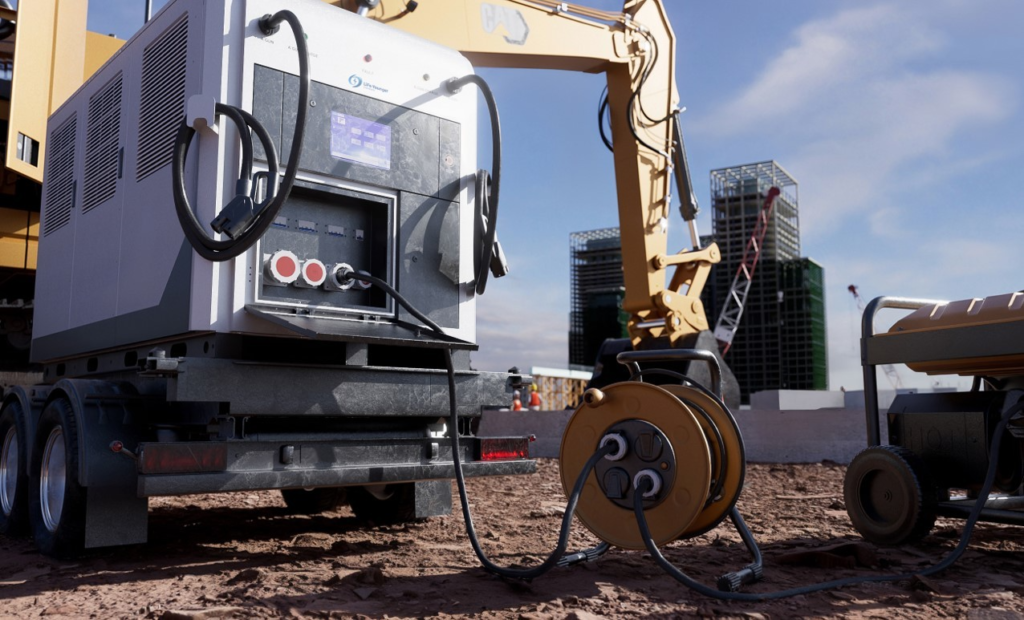The Netherlands is at the forefront of accelerating the adoption of zero-emission commercial vehicles, reducing greenhouse gas emissions, and promoting sustainable transportation. 🌱 Through initiatives like the Subsidy Scheme for Zero-Emission Commercial Vehicles (SEBA) and other incentives, the Dutch government is paving the way for a greener future. 🌿 Here’s a detailed look at these policies and their potential impact:
1. Zero-Emission Commercial Vehicle Subsidy Scheme (SEBA)
- Subsidy Period: March 15, 2021, to December 31, 2025. 📅
- Eligibility: Businesses and non-profit organizations registered in the Dutch Chamber of Commerce (excluding government entities). 🏢
- Subsidy Rates:
- N1 Vehicles (Light Commercial Vehicles): 10% of the net list price (excluding VAT), up to €5,000 per vehicle. 💰
- N2 Vehicles (Max weight ≤ 4,250 kg): 10% of the net purchase price (excluding VAT), up to €5,000 per vehicle. 💸
- Requirements:
- Vehicles must be fully electric and emission-free. 🔌
- Fall under N1 or N2 classifications with a maximum weight of 4,250 kg. ⚖️
- Net list price or purchase price must exceed €20,000. 💵
- N1 vehicles must have WLTP type approval. 📜
- Minimum range of 100 km. 🛣️
2. Environmental Investment Allowance (MIA)
- Businesses can deduct up to 36% of their investment in zero-emission commercial vehicles. 💼
- Only vehicles listed in the 2020 Environmental List are eligible. 📋
3. Local Government Incentives
- Amsterdam:
- Up to €3,000 for taxis. 🚖
- Up to €40,000 for vans, trucks, or buses. 🚐🚛🚌
- Additional €500 scrappage bonus for old diesel vehicles. 🚗💨
- The Hague:
- €3,500 direct compensation for scrapping non-zero-emission commercial vehicles. 💳
4. VAT Exemption
- Businesses promoting electric driving are exempt from the standard 21% VAT, paying only a 2.7% private use tax. 💼
5. Company Car Tax Benefits
- 2021: 12% private use tax (vs. standard 22%). 📊
- 2022-2025: 16% private use tax (vs. standard 22%). 📈
Impact and Significance of These Policies
- Accelerating Zero-Emission Vehicle Adoption:
- Subsidies and tax incentives lower the cost of zero-emission vehicles, encouraging businesses to transition to greener fleets. 🌿
- Reducing Greenhouse Gas Emissions:
- Widespread adoption of zero-emission vehicles significantly cuts CO2 and GHG emissions, helping the Netherlands meet its climate goals. 🌍
- Boosting Innovation and Industry Growth:
- Policy support drives advancements in EV technology and fosters growth in related industries. 🚀
- Improving Air Quality:
- Zero-emission vehicles reduce urban air pollution, enhancing public health and quality of life. 🌬️
- Economic Benefits:
- Businesses save on operational costs through subsidies, tax breaks, and scrappage bonuses. 💰
Future Outlook
- Policy Optimization: The Dutch government may expand subsidy programs or increase funding based on market feedback and technological advancements. 📈
- Infrastructure Development: As zero-emission vehicles become more common, investments in EV charging stations and mobile EV charging solutions like #iTrailerPortable will be critical. 🔌
- Global Collaboration: The Netherlands’ success could serve as a model for other countries aiming to reduce carbon emissions and promote sustainable transportation. 🌍
How #iTrailerPortable Fits In
The #iTrailerPortable portable EV charger is a game-changer for businesses adopting zero-emission vehicles. Its mobile EV charging capabilities ensure flexibility and reliability, addressing range anxiety and supporting the growing demand for EV charging stations. By integrating solutions like #iTrailerPortable, businesses can further reduce CO2 emissions and contribute to a greener future. 🌿
Conclusion
The Netherlands’ zero-emission commercial vehicle policies, combined with innovative solutions like #iTrailerPortable, are setting a global standard for sustainable transportation. These efforts not only provide economic benefits to businesses but also lay a solid foundation for achieving long-term environmental goals. 🌍





